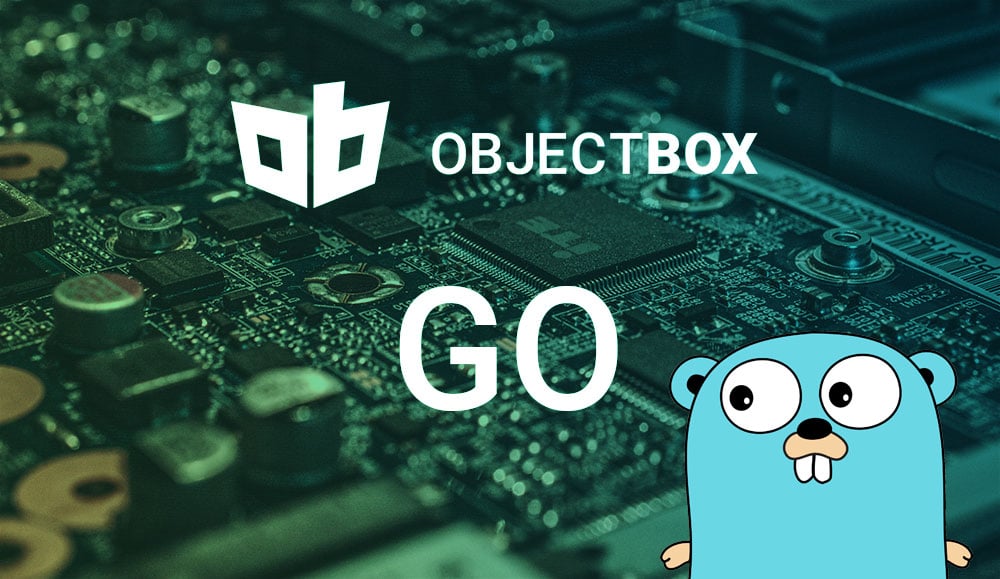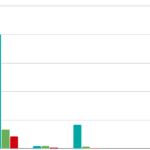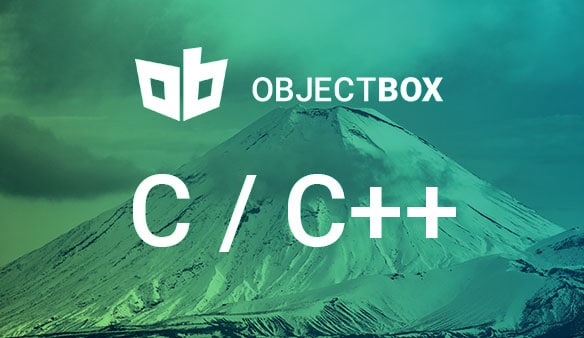
Go, ObjectBox Golang!
Today, we are bringing the power of ObjectBox to Golang. Whatever solution you are building, be it a web service, an IoT/IIoT solution, or any data-driven application, you will benefit from the efficiency and speed of ObjectBox (see benchmarks below). Let us know what you think!
Let’s look at some code, and see how ObjectBox persists Go structs (objects):
|
1 2 3 4 5 |
id, _ := box.Put(&Person{ FirstName: "Joe", LastName: "Green" }) // And later... person, _ := box.Get(id) person.LastName = "Black" box.Put(person) |
The ObjectBox Go API allows you to create data-driven cross-platform apps. ObjectBox supports x64 and 32 bit ARM (ARMv6 and ARMv7) CPUs, enabling you to benefit from a super-fast scalable database on IoT devices, industrial edge gateways or, for example, the Raspberry Pi family (from the minimalistic Pi Zero to the high-spec Pi 3B+). At the same time, you can now target desktop and server apps running on Linux, MacOS, or Windows using Go.
How to get started
To get started, please have a look at the ObjectBox Go docs. Here’s the TL;DR version for your bash:
|
1 2 3 4 5 6 7 8 9 |
go get github.com/objectbox/objectbox-go go get github.com/google/flatbuffers/go mkdir objectboxlib && cd objectboxlib curl https://raw.githubusercontent.com/objectbox/objectbox-c/master/download.sh > download.sh bash download.sh # press y to install locally go install github.com/objectbox/objectbox-go/cmd/objectbox-gogen/ go test github.com/objectbox/objectbox-go/... |
This will clone the repository to your GOPATH, download the objectbox-c library and install the ObjectBox code generator.
At this point you can start using ObjectBox in your project – just define a struct you want to persist, add //go:generate objectbox-gogen comment in the same file and run go generate ./… on your project. See Getting started for more details.
Performance benchmarks
We have done some quick CRUD performance tests to give you an impression about the speed ObjectBox provides. On a i7-8850H CPU, ObjectBox consistently processes over 1.5 million CRUD operations per second with 4.4 million object reads per second:
The sources for the performance tests are part of the GitHub repository.
To put these numbers into perspective, we also did a comparison using an edge computing platform and two leading NoSQL databases. We won’t spill the names and final numbers just yet, as we are going to release all the details very soon. ?
Disclaimer: ObjectBox was the only database running in embedded mode, which is not supported by the others in this setup. Obviously this can have a significant impact on performance. On the other hand, this is the most resource friendly mode of operation (RAM and CPU), which might be very relevant if you target restricted ARM32 devices.
Your feedback
This is the first public version of ObjectBox for Go and we are more than excited to get your feedback on it. We have prepared a short questionnaire for you, which should only take 1-2 minutes. Your feedback is extremely valuable to make ObjectBox a fun tool to use.
Future work
While this initial release covers all basic features, the native core of ObjectBox offers much more than what is currently exposed to Go. For example, a complete set of query conditions and relations between objects. Also, we will introduce a client/server operation mode. This will allow ObjectBox to run in Containers (e.g. Docker) and in classic server setups. As a major theme, the ObjectBox team is also working on data synchronization across devices. This keeps edge devices and gateways “in-sync”. Sync also enables seamless integration with mobile apps (Android and iOS) pushing relevant data to mobile clients and back. Of course sync will also be available for Go. You can sign up here for updates on sync.






